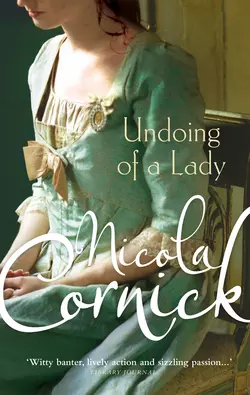Undoing of a Lady

Nicola Cornick
Тип: электронная книга
Жанр: Современная зарубежная литература
Язык: на английском языке
Стоимость: 237.38 ₽
Статус: В продаже
Издательство: HarperCollins
Дата публикации: 16.04.2024
Отзывы: Пока нет Добавить отзыв
О книге: “I promise that I will release you tomorrow – when the hour of the wedding is past. ” Nat Waterhouse must marry an heiress – and where better to find one than Fortune’s Folly, where unmarried ladies are subject to a medieval law which forces them to wed or surrender half their wealth? Lady Elizabeth Scarlet vows there is just one way to save her childhood friend from a loveless marriage: kidnap him! But Nathaniel is furious. So angry that he challenges her to take their assignation to its natural conclusion and seduce him.When her inexperienced attempt flares into intense passion, Lizzie is ruined…and hopelessly, unexpectedly in love! Now the wild and wilful Lizzie must convince Nat that they are a perfect match – in every way.